CPR dummies and mock defibrillators in tow, Randy Feesler wants to keep others from dying
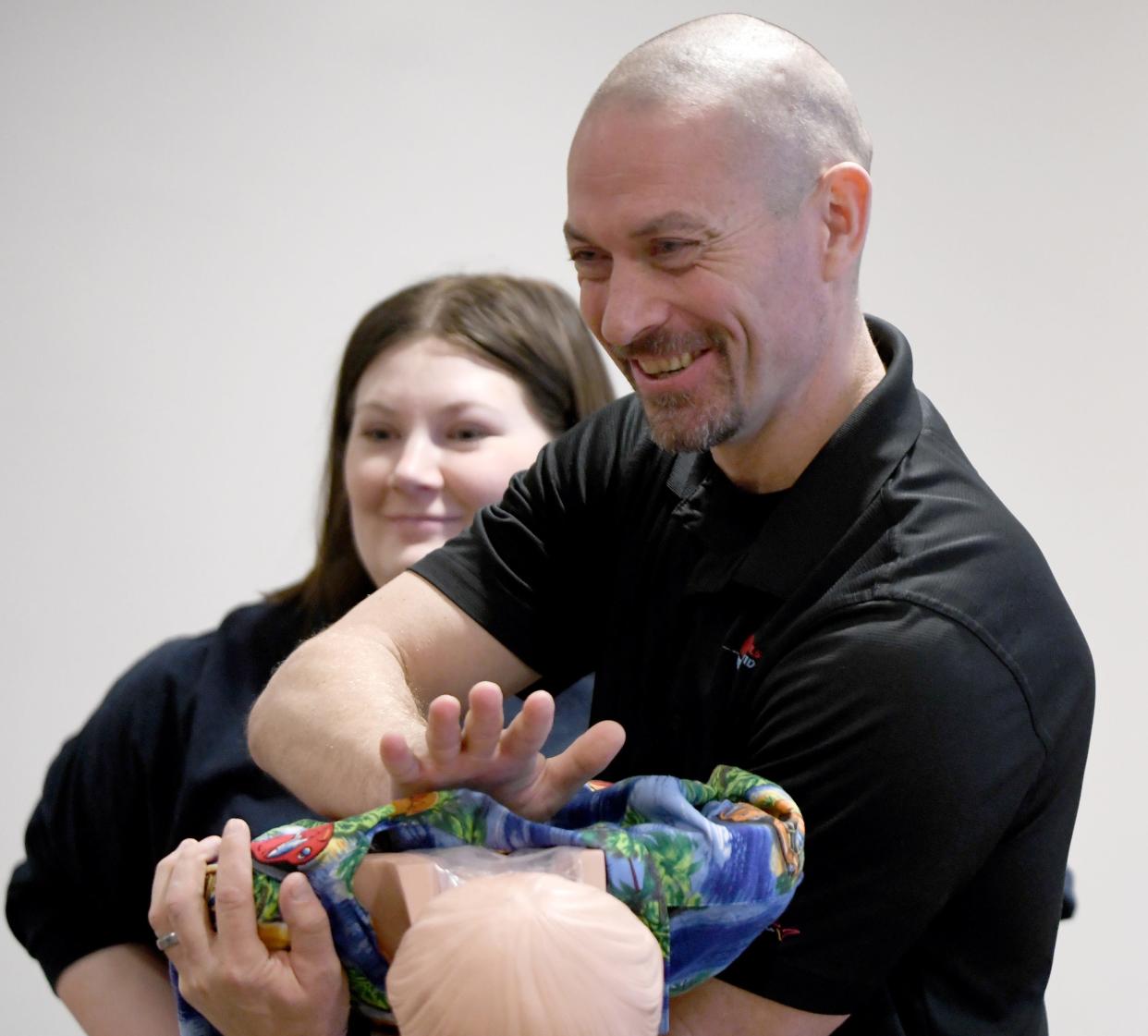
Those who can, do save lives. Those who can't, still have time to learn. And those who teach, well, they want everyone to learn how to save a life.
"It really is the ultimate," Randy Feesler said.
His full-time job is Ohio Department of Natural Resources officer. His passion and side gig, though, is teaching people how to save lives. The 43-year-old Jackson Township husband and father has turned the idea into an art, science and business.
Feesler is also known as "The Pulse Provider."
That's what he named the company he founded more than five years ago. It's the name plastered on the 2019 Chevy Traverse he drives around the region, hauling CPR dummies and mock defibrillators to American Red Cross locations, schools, businesses and even private homes.
"Nowhere you'd rather be at 8 in the morning, right!" he told 11 men and women to open a class on a Saturday in January at the American Red Cross building on West Market Street in Akron.
Who is the Pulse Provider?
The Pulse Provider offers a slew of in-person, or blended (half online) courses in adult or pediatric first aid, CPR, use of an automated external defibrillator and basic life support — and an advanced class to become an instructor.
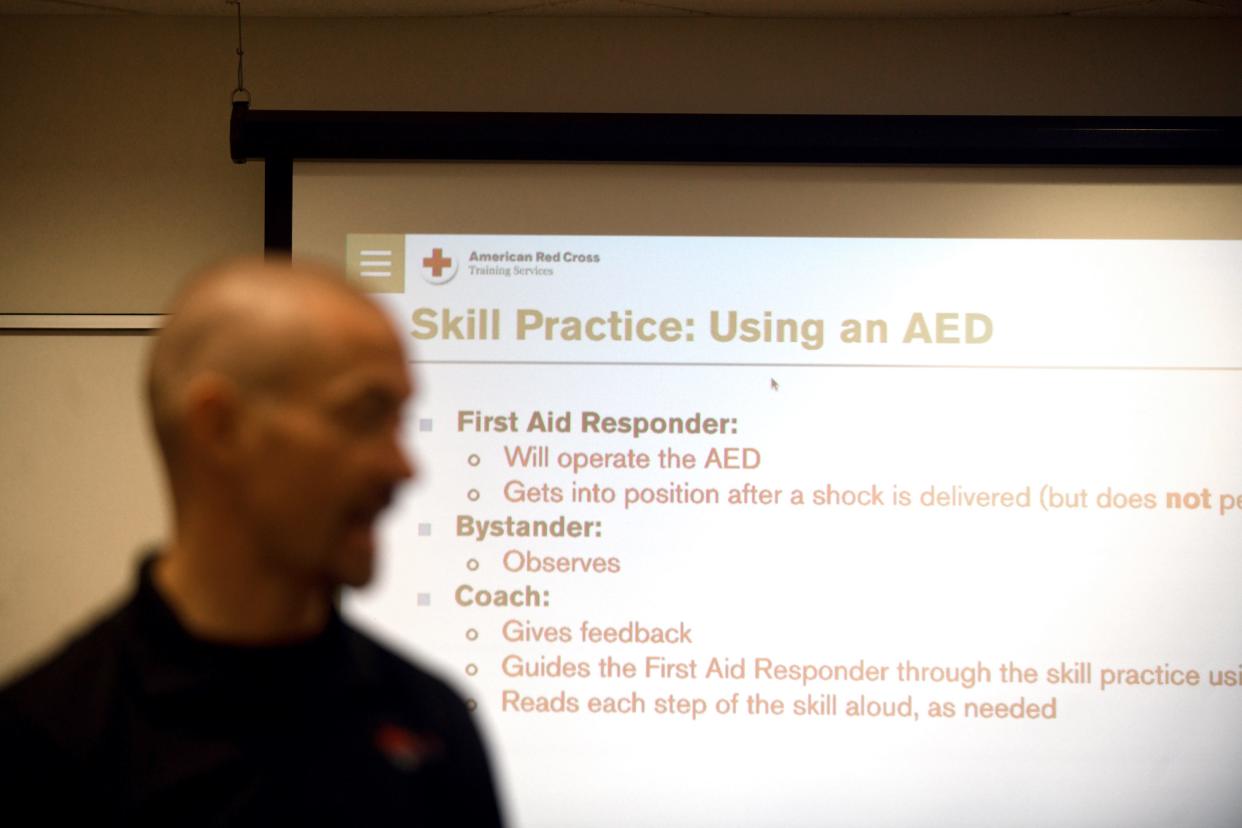
All are American Red Cross-certified and monitored curriculum. But unlike several hundred Northern Ohio Region staff instructors, Feesler works for himself.
He's one of about 50 in the region.
"And Randy is a very good instructor," said Phil Ormandy, senior training services advisor at American Red Cross Training Services in Cleveland.
At the Saturday morning class in Akron, Feesler asked class members if they had a legal obligation to help someone who collapsed at their workplace? What about an injured car crash victim? How about on a beach?
The responses were mixed.
The correct answers are no, no and no.
Feesler shared the 2017 story of a group of Florida teens who laughed and taunted a 31-year-old man, who was struggling in the water. The teens filmed the incident ― in which the man drowned ― and posted a video on social media. None of the teens was charged with a crime.
But what of Good Samaritan laws?
They actually don't require an average citizen to help. Instead, they were crafted as a liability shield for those who provide care or treatment in an emergency, but fail in the effort, or even worsen a victim’s situation.
In an emergency such as sudden cardiac arrest, inaction usually means death. Action saved the life of Buffalo Bills' safety Damar Hamlin on national TV a year ago, and USC basketball player Bronny James last summer.
"Each minute (without intervention) ... is another 10% chance they will not make it," Feesler told the class. "Brain damage begins in four to six minutes."
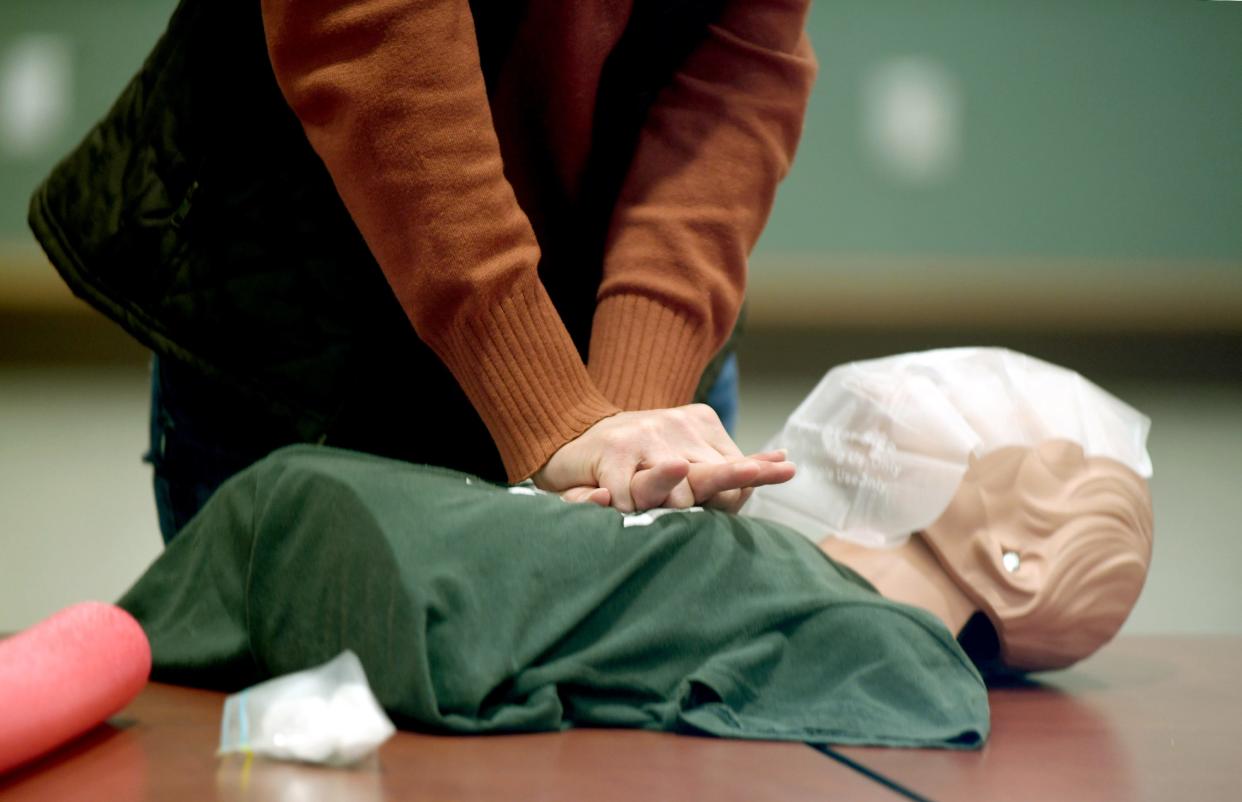
The Pulse Provider clients take classes to renew expired certifications (they last two years). Some attend because their employer requires it to adhere to federal occupational safety rules. Some don't even care about an official card; they just want to learn to help family members, friends or strangers in a crisis.
It's not a far-fetched concern.
One in seven people reading this will have an opportunity to use CPR in his or her lifetime. Not much different than your chance of drawing either an ace or a king from a deck of cards or rolling seven on a pair of dice.
"That's the biggest realization; it can happen at anytime, anywhere," said Tim Graichen of Cuyahoga Falls, who learned some of his skills in a Pulse Provider class.
Then, he used them to save a life.
Student Tim Graichen uses his skills to save a life
Graichen had been certified in CPR for at least a couple decades, when he stumbled upon a Pulse Provider class because it was time for him to renew.
Feesler impressed him.
"He's so energetic," Graichen said.
In September, teacher and student were presented Lifesaving Awards during a board meeting of the Red Cross of Greater Akron and Mahoning Valley. The honors recognized Graichen's efforts while driving home from Tennessee.
"Saw a car going end over end," Graichen recalled.
It was a remote area along U.S. Route 27.
"Forty-six miles outside of Chattanooga," he said.
Graichen rushed to the wrecked car. The driver was unconscious. He had no heartbeat; he wasn't breathing. There was blood everywhere. Graichen dragged him out. He started CPR chest compressions and mouth-to-mouth resuscitation.
Emergency crews eventually arrived to take the crash victim to the hospital — and he survived.
Graichen said he's now shopping for an AED (defibrillator) to keep in his vehicle, just in case.
What lifesaving skills does The Pulse Provider teach?
The Pulse Provider courses teach students lifesaving protocol in a solitary and group setting, from 911 call to intervention. How to stop bleeding. How to save a choking victim. How to respond to a near drowning. How to use a defibrillator to shock a heart back to rhythm. How to perform CPR and mouth-to-mouth.
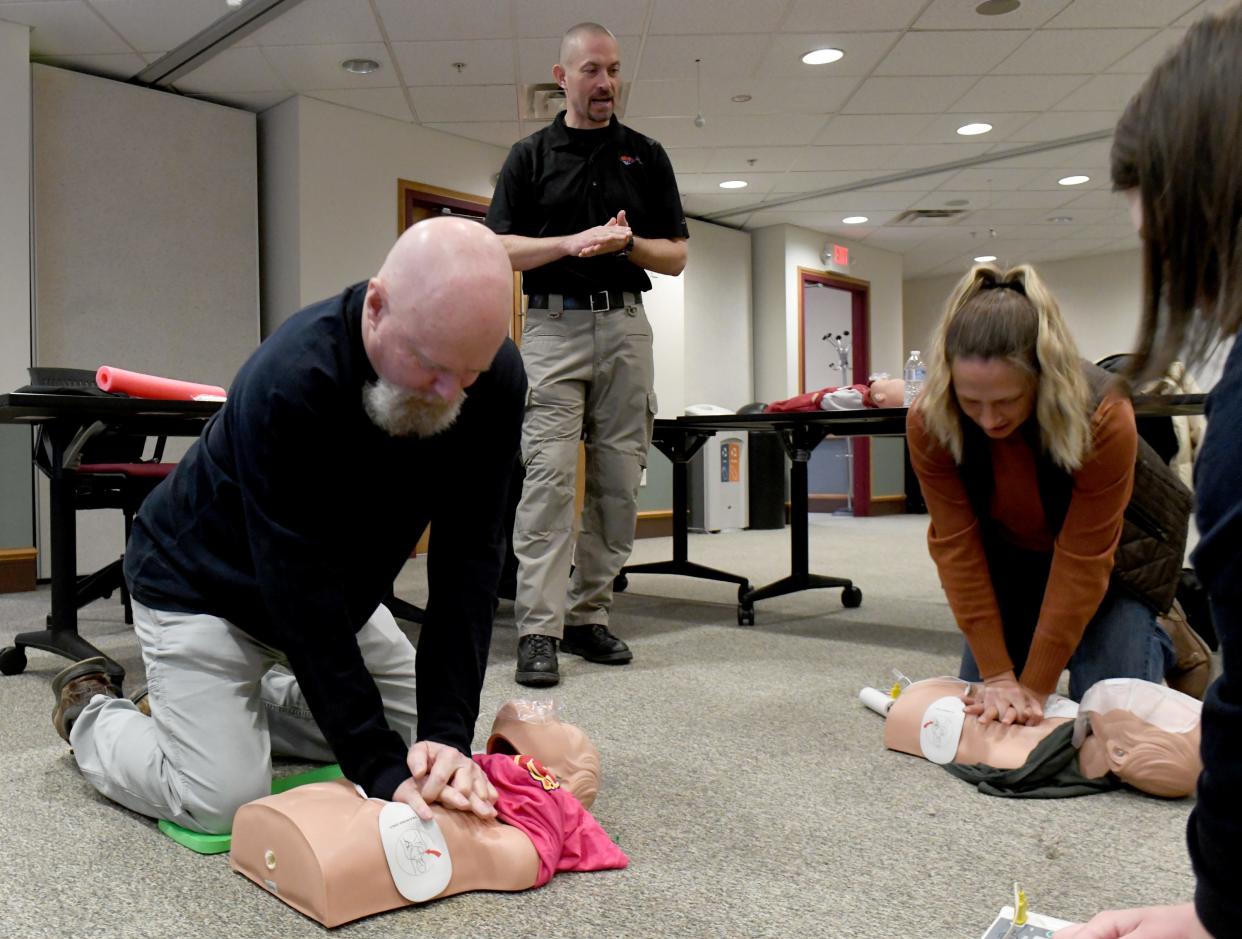
On occasion, students such as Graichen send Feesler an email to thank him, or to write a review of his courses.
A man who took classes at the Ken Weber Goodwill campus in Canton in 2022 described how two weeks later he helped a woman who'd collapsed at a conference in Milwaukee; a woman thanked him for providing her the confidence to deal with her 18-year-old son's grand mal seizure; and a health care provider preparing to return after maternity leave told Feesler that his dynamic teaching style was just what she needed.
Then, there are people like Pat Cornelius.
A few years ago, the now 72-year-old was searching for CPR courses where she lives in Wooster, and couldn't find any. She came across Feesler. He agreed to come to her house to teach a course to her and her friends.
"It's about self-preservation," Cornelius said.
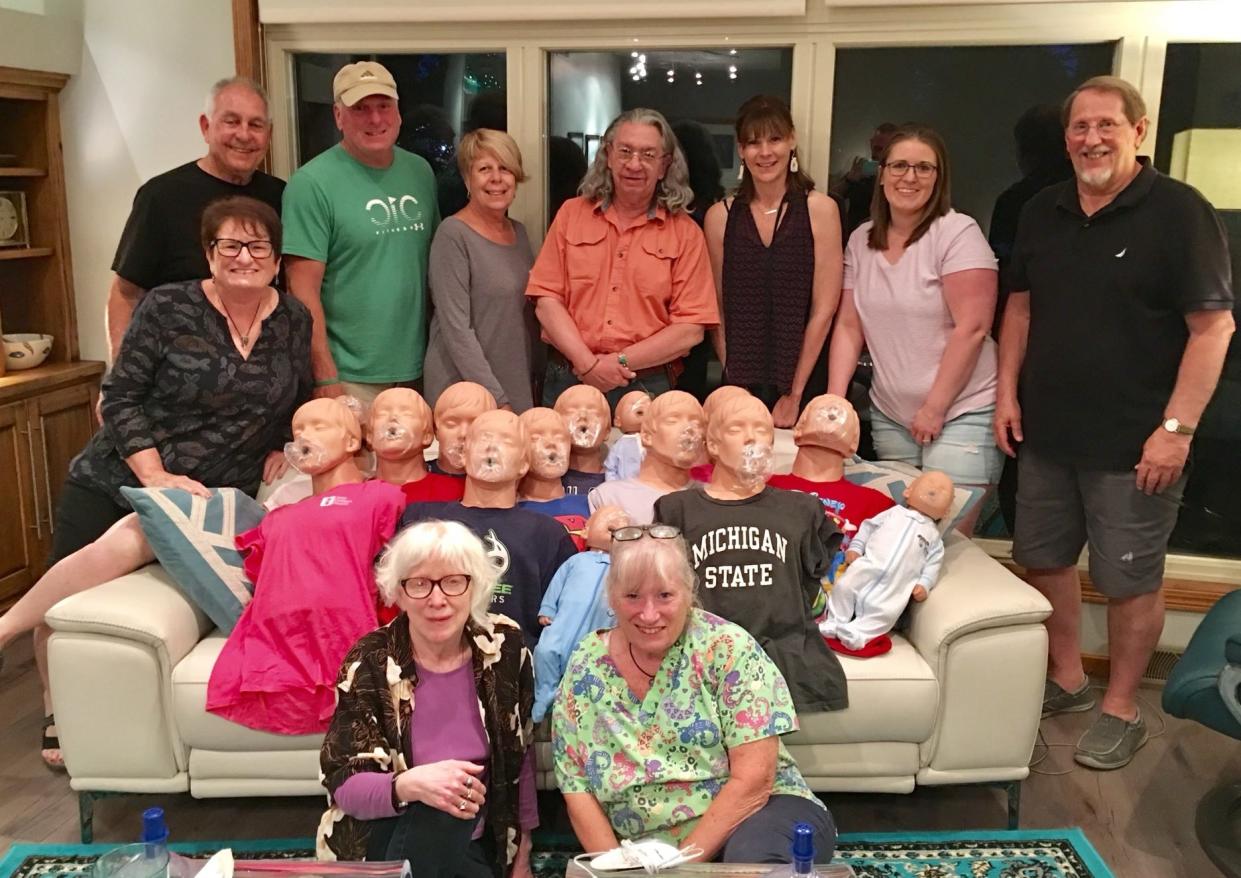
Her parents and five brothers have all had heart attacks; her friends aren't getting younger.
The dozen attendees put together a pizza party, accented by The Pulse Provider lifesaving courses, followed by a nightcap of wine to finish the evening.
"Frankly, I'm thinking about asking him to come again ... it beats a Tupperware party," she said.
The Red Cross and others have long preached the reality of cardiac arrest, when the heart stops or goes haywire and can't pump enough blood to the brain and vital organs.
More than 350,000 people a year suffer cardiac arrest and only 1 in 10 survive.
The best defense: Call 911. Start CPR. Use a defibrillator.
The Pulse Provider comes to life
A Norton High graduate, Feesler dabbled in assorted careers, often holding two jobs at the same time.
He'd worked for the Louisville Fire Department and Minerva police. He'd toiled in Canton Municipal Court and coached youth football. It wasn't until he landed at the state's Natural Resources Department as a watercraft officer that he shed some extra jobs and began to teach lifesaving courses to staff.
Then about seven years ago, Ormandy of the Red Cross, needed a fill-in instructor for a course for a school system. He happened upon Feesler, whose background until then was largely teaching American Heart Association curriculum lifesaving classes.
In business, they're a Red Cross competitor.
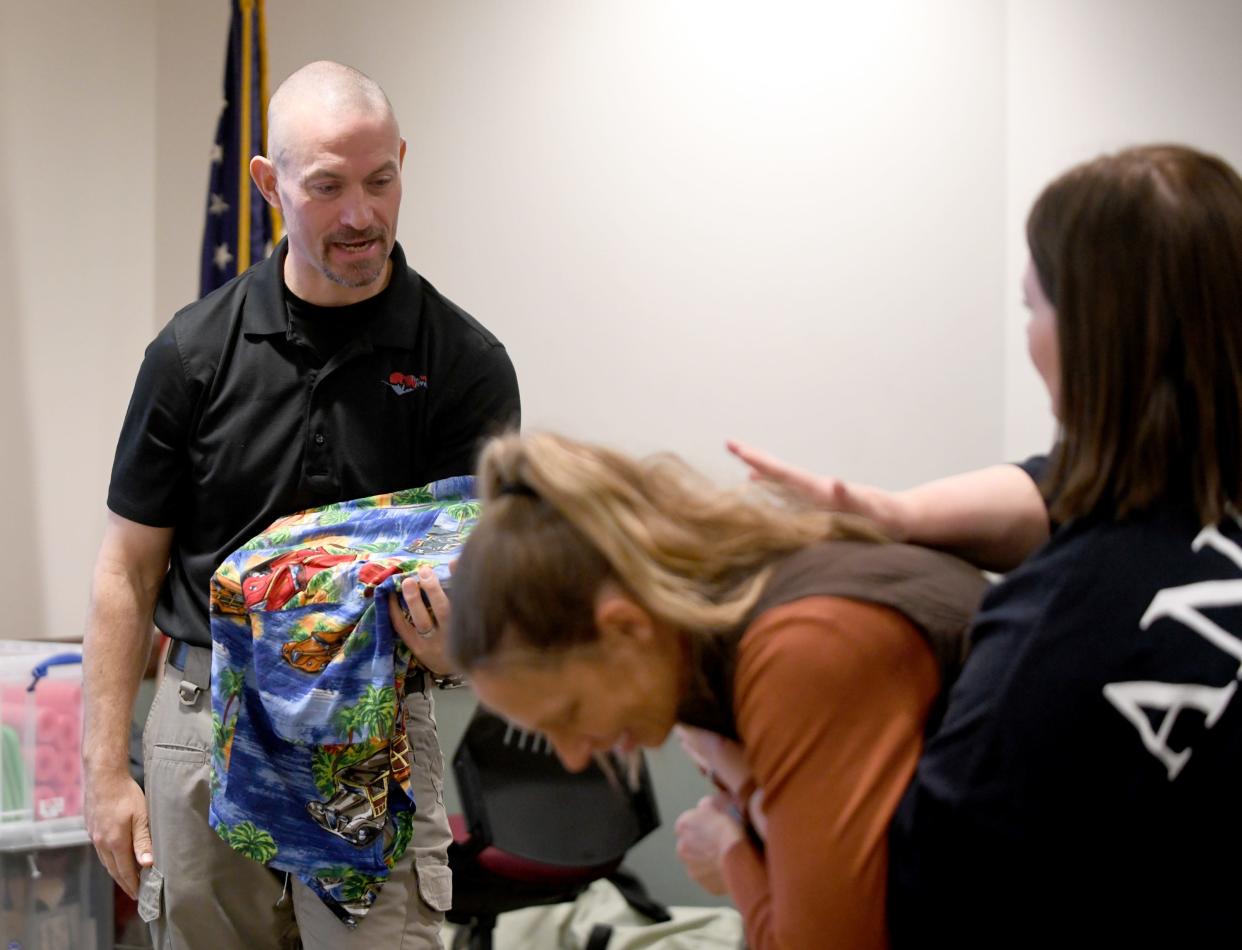
In life, they have the same goals.
"We just want people trained," Ormandy said.
Feesler said it was Ormandy who encouraged him to start his own business. To embrace the Red Cross curriculum. And to teach people how to save lives.
"I had three students my first class," Feesler recalled.
He charges between $75 and $85 per course, typically less than a Red Cross instructor-staffed course. Ormandy said more than half that money goes to Red Cross certificates that Feesler purchases for graduates and his expenses.
"You can't make a living on it," Ormandy explained.
The American Red Cross itself, and through third parties such as The Pulse Provider, provide lifesaving courses to about 4.6 million people a year. Ormandy said fees cover organization costs for the courses, and then some — extra revenue gets diverted to the 60,000 disasters the agency responds to each year.
The mission statement of Feesler's business:
The Pulse Provider believes that those who feel confident in Life-Saving skills, will be tomorrow’s heroes. It is our goal to offer quality and comprehensive courses that will train individuals and organizations to gain the knowledge needed to make a positive difference in any emergency situation.
"It's always going to be quality over quantity," Feesler said, adding that he's had other instructors, who were students at one time, come back to help.
Typically, lifesaving courses include practice on dummies in a sterile environment.
There's even time for levity. At least enough to keep students engaged. One of the oldest CPR jokes is that chest compressions are best done to the beat of the Bee Gees song "Stayin' Alive." Those who prefer a glass half-empty outlook can opt for Queen's "Another One Bites the Bust."
In real life, though, it's messy.
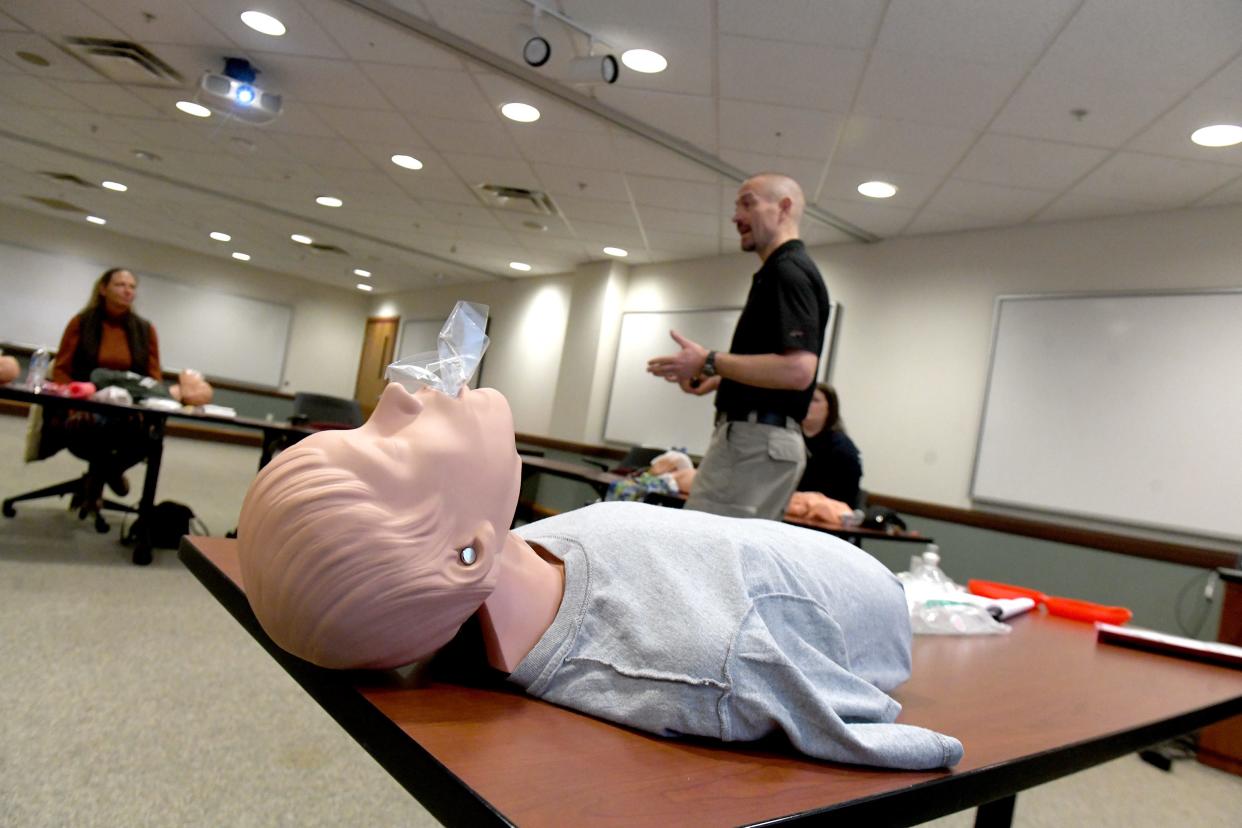
There can be blood. It could happen on a boat in the middle of a lake. At a crowded concert. Beneath a car. Feesler tells students to think. Chest compressions can be done with an elbow or a foot. It's not always going to be textbook.
"He puts his heart and soul into it," said Feesler's mom, Vicki.
It's a way of life for The Pulse Provider.
"His kids, they play 'rescue,'" she said.
That's when Feesler and his wife Aimee's, daughter Josie, 3, and son, Toby, 5, respond to a pretend house fire and save someone. They drag them from the fire and perform CPR.
"No matter what we're doing ..., he's always thinking about safety; he's always been like that," Vicki Feesler said.
Reach Tim at 330-580-8333 or tim.botos@cantonrep.com.On X: @tbotosREP
This article originally appeared on The Repository: Randy Feesler, AKA The Pulse Provider, teaches how to save lives
